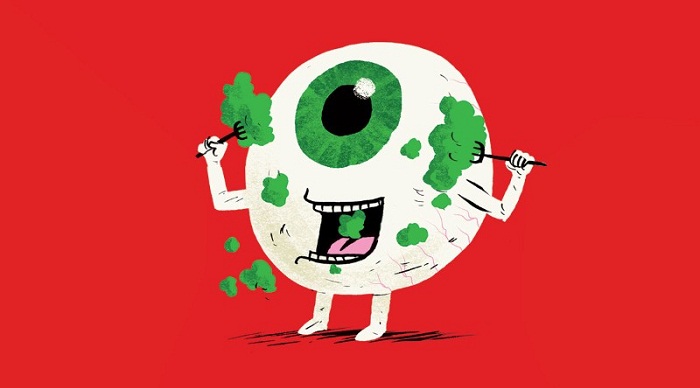Yet it turns out that there is some truth to the idea that diet can affect our eyes. Retinal cells contain three yellow pigments – lutein, zeaxanthin and meso-zeaxanthin – which absorb near-ultraviolet light, protecting the eye from its damaging effects and reducing glare. These pigments are concentrated in the centre of the retina that produces the sharp central area of our vision, the macula. “It’s like wearing internal sunglasses,” says Billy Hammond of the University of Georgia in Athens. “It reduces the light intensity and absorbs scatter.”
We get these pigments from food, and the richer our diet is in them, the higher the levels in our macula. In theory then, people of any age could boost their eyesight by improving their diet or taking supplements. A large trial of supplements is due to finish in July, but a smaller one, in which 36 people took a pill containing all three pigments every day for six months, has already yielded positive results.
“In theory, people of any age could boost their eyesight by improving their diet”
The effect was big enough that people should have noticed the difference when coping with the glare of car headlights at night, for instance, says team member John Nolan, a nutrition and vision researcher at Waterford Institute of Technology in Ireland.
Nolan says boosting macular pigment levels should be even better than wearing yellow-tinted glasses for driving at night, as some people do, because such glasses block blue light from the whole of the retina. Extra macular pigment, by contrast, doesn’t stop the light reaching the retinal cells outside the macula, so peripheral vision is not reduced.
Nolan already takes the supplements himself, and thinks taking all three is important. Hammond, however, thinks it is best to get these compounds from your diet, by eating plenty of vegetables – kale, spinach and red peppers are among the best sources. Eggs are another. “We like things to seem like drugs, but you’d always be better off just eating some spinach,” Hammond says.
A diet rich in macular pigments could not only improve your sight, it might actually save it. As we get older the retinal cells in the macula often become damaged. As the disease progresses, people develop a blurred patch in the centre of their vision that gets worse. Over a quarter of over-75s have macular degeneration, making it the biggest cause of blindness in Western countries.
As there is no cure, the best approach is to detect macular degeneration early and try to stop it progressing. Telltale yellow spots appear in the tissue underlying the retina before symptoms appear. Trials have shown that people in the early stages of the disease who take supplements of macular pigments, vitamins C and E, and zinc are 25 per cent less likely to suffer deterioration in their vision.
More about:
















































